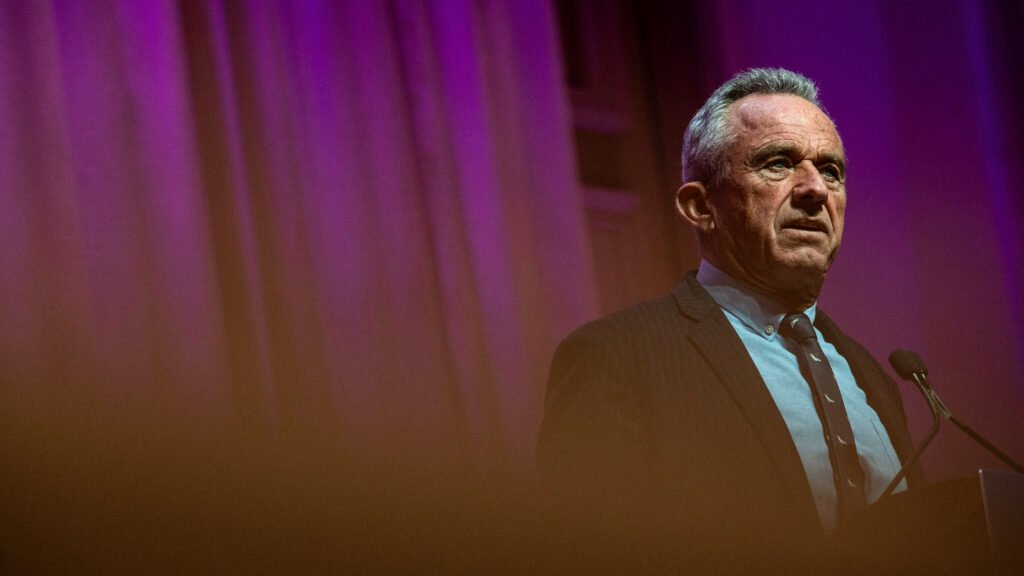It sends a message that people in recovery can achieve high levels of success and contribute meaningfully to society. But it also raises concerns about potential conflicts of interest, given Kennedy’s past statements on addiction and his ties to advocacy organizations.
“Having a recovery advocate in such a high-profile position is a double-edged sword,” said Sara Jenkins, a public health researcher who studies addiction policy. “On the one hand, it’s great to have someone with personal experience in recovery leading the charge. On the other hand, we need to ensure that his views are evidence-based and not driven by personal beliefs or biases.”
Indeed, Kennedy’s past comments on addiction have raised eyebrows among some in the recovery community. In a 2019 interview, he suggested that people with addiction should be forced into treatment against their will, a controversial stance that goes against the principles of autonomy and self-determination that underpin many modern addiction treatment programs.
“I think we need to take a hard look at our current approach to addiction treatment,” said Dr. Rebecca Parker, a psychiatrist who specializes in addiction medicine. “Forced treatment can be traumatizing and ineffective, and it often fails to address the underlying issues that contribute to substance use in the first place.”
Despite these concerns, Kennedy’s nomination has been met with cautious optimism by many in the recovery community. His willingness to engage with a diverse range of perspectives on addiction policy and his commitment to finding innovative solutions to the opioid crisis have earned him praise from advocates and experts alike.
“I think we need to give him a chance to prove himself,” said Jenkins. “If he can bring a fresh perspective to the table and help us rethink our approach to addiction, he could be a powerful force for positive change in the field.”
As Kennedy awaits confirmation hearings in the Senate, the nation watches with bated breath to see how his leadership will shape the future of addiction policy in the United States. With the opioid crisis showing no signs of abating, the stakes could not be higher. Only time will tell whether Kennedy’s vision for “Making America Healthy Again” will be the answer we’ve been waiting for.
Kennedy when we spoke last week.”
As Kennedy takes the helm of the Department of Health and Human Services, he will undoubtedly face pressure from both sides of the addiction policy debate. His personal experience with addiction and recovery will inform his decisions, but ultimately, his policy choices will need to be based on a balance of compassion, evidence, and effectiveness in addressing the ongoing crisis of substance use in America.
While Kennedy’s proposal for healing farms may seem reminiscent of past failures, he remains committed to finding innovative solutions to the addiction crisis. His focus on creating supportive communities for recovery and reconnection to nature reflects his belief in the importance of holistic healing approaches. Kennedy’s willingness to explore new ideas and listen to diverse perspectives sets him apart as a potential leader in the field of addiction medicine.
As Kennedy continues to advocate for his vision of healing farms and explore different approaches to addiction treatment, it is clear that his passion for helping those struggling with substance use disorders is unwavering. Whether through traditional 12-step programs, medication-assisted treatment, or innovative community-based solutions, Kennedy’s ultimate goal remains the same: to find what works best for each individual and support them on their journey to recovery.
With his background in advocacy and public health, Kennedy brings a unique perspective to the conversation surrounding addiction medicine. His willingness to challenge conventional wisdom and explore new possibilities could lead to significant advancements in the field. As Kennedy’s influence grows, it will be important to continue examining his ideas and their potential impact on the treatment of addiction.
Overall, Kennedy’s commitment to finding effective solutions for addiction and his openness to different perspectives make him a compelling figure in the field of addiction medicine. While his views on certain treatments may be controversial, his dedication to helping those in need is clear. As he navigates the complexities of addiction treatment, Kennedy’s willingness to listen, learn, and adapt will be crucial in shaping the future of addiction medicine.
Kennedy’s healing farm concept has sparked both curiosity and skepticism among critics. While his intentions are noble and his personal story of recovery is compelling, some fear that the approach may not be the most effective solution to ending the drug overdose crisis.
One critic, Marino, expressed concerns about Kennedy’s focus on sending individuals to a farm rather than utilizing evidence-based approaches to treat addiction. While the idea of a healing farm may seem like a beautiful story, Marino pointed out that it ultimately did not work as intended.
Despite the skepticism surrounding Kennedy’s approach, it is important to consider that he may have valuable insights and perspectives to offer on the issue of addiction. However, it is crucial to prioritize evidence-based strategies in addressing the drug overdose crisis.
As the debate continues, it is clear that there is no one-size-fits-all solution to addiction. While Kennedy’s healing farm concept may not be the answer, it is essential to explore a range of approaches and strategies to effectively combat the ongoing crisis.
STAT’s coverage of chronic health issues is made possible by a grant from Bloomberg Philanthropies. The financial supporters of STAT are not involved in any decisions regarding the publication’s journalism.


